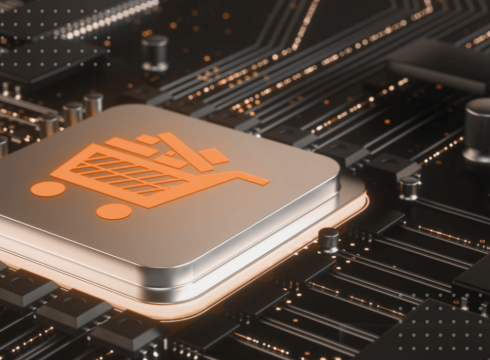Global E-Grocery Trends

Across the world, grocery businesses understand the importance of providing an excellent customer experience, especially when the goal is to increase their customer base. Since online grocery shopping began in the 1990s, digital commerce technology has evolved and is able to offer a more personalised and intelligent shopping experience.
According to Business Wire, the global online grocery industry is predicted to grow rapidly over the next 4 years. The rise in technology adoption, the introduction of omnichannel and the demands of time-starved shoppers are all contributing to the rapid acceleration of online grocery shopping around the world.
In fact, Gartner predicts that by 2023, the majority of grocery businesses which use AI will experience a minimum of 25% improvement in revenue and customer satisfaction. As the industry continues to innovate and adopts new technology, we take a look at the latest global e-grocery trends.
- Visual commerce
- Trust, privacy and security
- Personalised shopping experience
- Customer collaboration
- Subscription services
- Omni-channel commerce
- Connected commerce
- Artificial Intelligence
- Multichannel shopping experiences
- Online and physical store operational teams
- Real-time in store pricing
- Mobile payments and apps
Visual commerce
The rise in the use of visual commerce technology is expected to continue, with shoppers able to fully immerse themselves with a store’s products. Visual commerce technology includes everything from popular 360-degree videos to visual searches and virtual reality (VR) technology.
Trust, privacy and security
The increasing analysis of shopper data is leading to more focus on security, privacy and trust. It is important that online grocery businesses establish a balance of gathering the data they need, without causing privacy or security issues. Gaining customer trust begins by offering complete transparency when it comes to how data is stored and used. It is predicted that an increasing number of countries will begin to implement strict privacy regulations with businesses encouraged to comply.
Personalised shopping experience
Customers are looking for a personalised shopping experience, which will offer improved customer satisfaction, foster brand loyalty and encourage sales. As technology develops, there are many ways to offer an increased level of personalisation, such as product recommendations, landing page offers and search assistance.
Customer collaboration
As customers continue to incorporate technology into their daily lives, retailers will soon be able to collaborate through shared technology. For example, the power of social media can be harnessed to influence and inspire, with consumers providing collaborative content and innovative ideas.
Subscription services
There are already many items which are sold through subscription services, with recurring payments taken in exchange for regular automatic deliveries. This income stream creates a predictable income, while customers also benefit from convenience and savings. Gartner predicts that by 2023, 75% of online retail businesses will be offering subscription services.
Omni-channel commerce
Customers are beginning to use a variety of channels when shopping online, with omnichannel technology offering a consistent experience throughout the purchasing journey. Many businesses are already offering the option for customers to order online and pick up in-store, which supports the incorporation of multiple channels and positions the store as the hub at the centre of the business. Regardless of how advanced technology becomes, it is expected that physical stores will continue to be the main channel of revenue and point of customer interaction. It will be important for stores to implement an effective strategy which continues to evolve to meet the changing needs of consumers.
Connected commerce
As homes begin to incorporate connected devices, it will soon be possible for technology and appliances within the home to make purchases on behalf of homeowners. This will reduce friction within the customer journey while expanding the potential of online shopping channels.
Artificial Intelligence
Advanced analysis techniques can be used to automate decisions within the digital commerce industry, such as product recommendations, personalised offers and fraud detection. It is expected that the use of AI techniques will enable organisations to improve customer experiences, while quickly integrating new capabilities within the back end. Gartner recommends that businesses continue to develop their AI expertise by investing in supply chain and logistical AI technology. By incorporating AI at an early stage, the workforce will feel confident and comfortable using the technology and the chances of successful adoption will increase.
Multichannel shopping experiences
Customers appreciate having the option to shop online or within a physical store via multichannel retailing. The incorporation of technology which provides multichannel shopping experiences is expected to increase, as retailers begin to recognise its importance. Incorporating the right technology can help retailers achieve seamless transactions between their online and offline channels, with an increasing number of retailers believing their instore activity is heavily influenced by online activity.
Online and physical store operational teams
According to Gartner, there will be continued integration of online and physical retail operations, with cross-functional project teams established to deliver improved service levels. These teams will be aligned to both online and offline operations, allowing businesses to improve the incorporation of technology while also optimising retail operations.
Real-time in store pricing
It is predicted that mobile applications will be used to manage and adjust real-time in-store pricing. As customers continue to share data from a variety of sources, they expect a higher degree of personalisation, which could translate into immediate personalised offers. However, to achieve this level of contextualisation, retailers will need to understand purchase decisions and customer behaviours.
Mobile payments and apps
The incorporation of mobile apps and payments will enable customers to shop online, while also obtaining incentives to shop within physical stores. By investing in unified retail technology, retailers will be able to facilitate a cohesive shopping experience, both online and offline.
It is clear from the predicted trends that online shoppers are looking for convenience, personalisation and improved shopping experiences. To benefit from the potential acceleration of eGrocery shopping, retailers need to embrace the shift towards omnichannel retailing. As a number of new challenges and opportunities arise, it is important that e-grocery businesses choose the right partners.
Here at Ubimecs, we specialise in providing omnichannel commerce platforms which empower large-scale retail businesses. Our sophisticated infrastructures enable businesses to manage their entire business ecosystem within a single capable platform. To find out more about how we can help create seamless online commerce solutions, which are specific to your business and industry, please contact our team today.
- Visual commerce
- Trust, privacy and security
- Personalised shopping experience
- Customer collaboration
- Subscription services
- Omni-channel commerce
- Connected commerce
- Artificial Intelligence
- Multichannel shopping experiences
- Online and physical store operational teams
- Real-time in store pricing
- Mobile payments and apps




